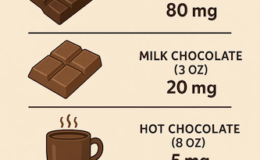Is it true that children have no memory until they are three years old?
- By : Jessica Jiayi W
Regarding whether children have memories before the age of 3, and why they might not remember, this topic often sparks heated discussions. It’s not uncommon to see mothers on the internet discussing:
“Have you heard that children don’t have memories before the age of 3? Is that true or false?”
“I’m not sure, my child is 4 and a half years old, she doesn’t remember the trips we took last year, but she remembers we traveled by train.”
So, do children really have memories before the age of 3? And what can they remember?
Today, let’s talk about children’s memories before the age of 3.
Regrettably, all the efforts you put into your child before the age of 3 might not be remembered.
Humans suffer from amnesia, specifically, “childhood amnesia,” which refers to our inability to recall events from before we were 3 years old.
Why do we forget? There are several explanations, such as:
① Rapid brain changes in infancy. Numerous neurons are born; many synapses form; many disappear. These changes erase memories.
② The nervous system is not yet mature. Memories require the hippocampus and the prefrontal cortex, which do not fully develop until ages 3 or 4, making earlier memories hard to retain.
③ Lack of self-awareness. To remember “what I experienced before,” one must develop a concept of “self” and a sense of “the past”—neither of which are innate.
④ Lack of language. Language helps us organize experiences and form memories. Without this tool, memories are hard to encode and retrieve.
⑤ Childhood experiences are too mundane—mostly eating, sleeping, playing. We tend to remember things that evoke strong emotions longer and more vividly.
Although a 3-year-old might remember events from when they were 2, only emotionally impactful events are remembered into adulthood: such as being hospitalized at 2, a sibling being born, moving houses at 3, or the death of a family member at 3…
Regardless of which explanation comes closest to the truth, one thing is clear: the efforts adults put into their infants from ages 0 to 3 will be entirely forgotten.
But don’t be disheartened, experiences before the age of 3 are preserved in another form.
To say they are “completely forgotten” might not be entirely accurate.
Though not recallable, initial experiences are saved in our brain circuits in another way.
For example, trust.
Whether big hands brought comfort, harm, or were absent when needed in times of hunger and cold, we learn whether we can trust others.
When seeking interaction, was the voice immediate or indifferent? We learn whether we are valued or worthless.
When attempting new things, were adults patient and encouraging, did they intervene directly, or did they mock and belittle? We learn whether we are capable and independent or inept.
Our amygdala remembers whether the world is worth exploring or guarding against.
Our vagus nerve remembers whether interactions with others are worth looking forward to or are stressful.
Our reward system remembers how much dopamine to release in intimate relationships.
Our mirror neurons remember the joy of empathy.
Our dorsal anterior cingulate cortex remembers the physical pain of rejection.
These memories, formed in infancy, can last a lifetime.
Believe me, memories may fade, but love never will.
So, whether it’s feeding, changing diapers, making babbling sounds, or when being held, their little hands gently wrapping around an adult’s neck…
Even if the infant forgets everything, and only the adults retain these memories, it’s okay.
The little infant just needs to try their best to grow.
Until one day, when the once infant has grown up and starts to take care of another infant…
Or when the once infant grows up and reads related research…
They’ll realize:
The calmness, curiosity, optimism, and resilience we possess weren’t inherent.
Even the ability to laugh with friends and be intimate with a partner, in part, owes thanks to the memories left behind in those earliest days.
Even if we can’t narrate those initial stories, your neural circuits still remember—during that forgotten time, someone once loved you deeply.


